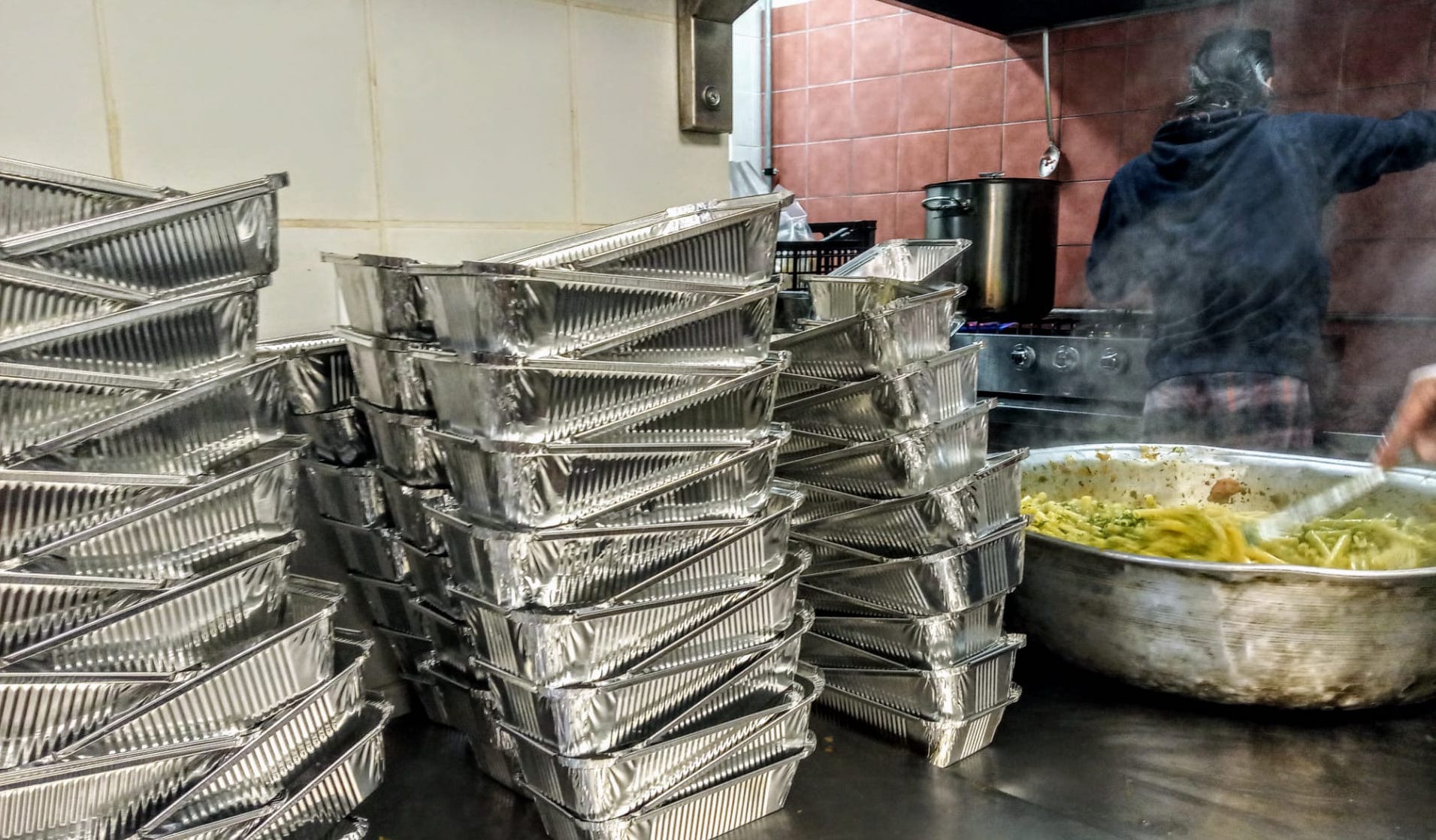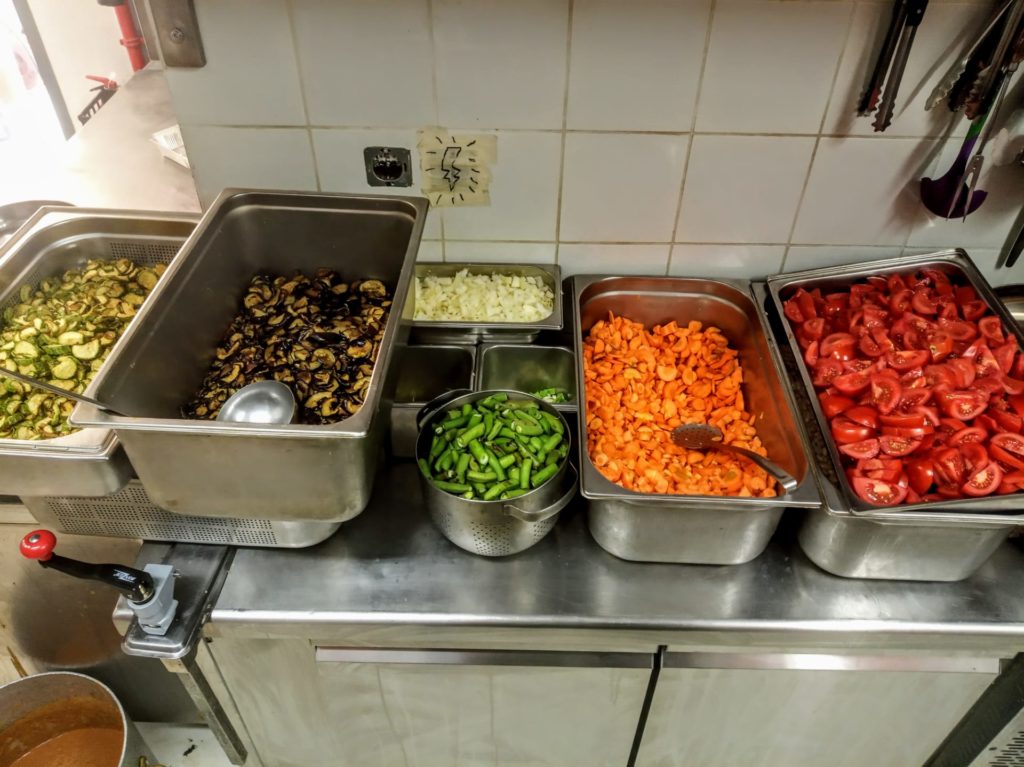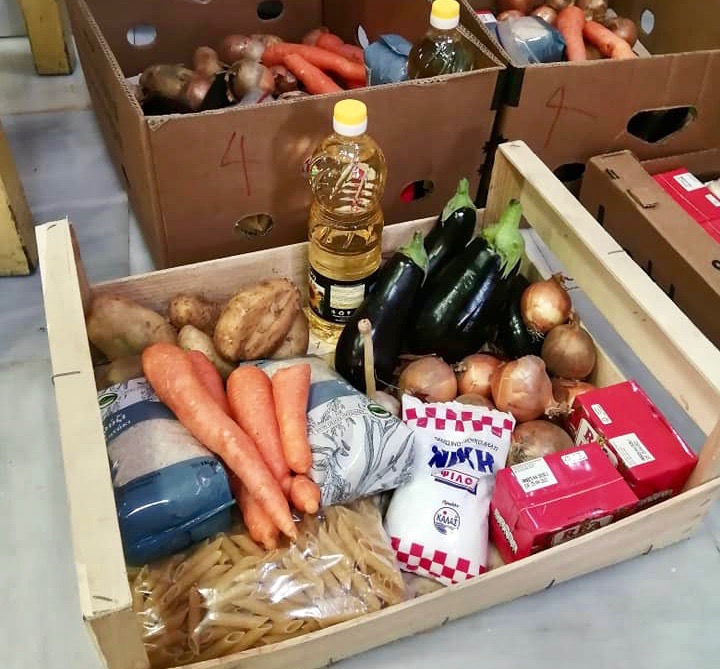While I’m very much still in St. Andrews, I want to talk about an incredible initiative from Athens. Social media have allowed me to stay in contact with Khora, where I volunteered last summer. Khora is a grassroots organisation providing a range of resources (anything from clothes to legal assistance) to refugees and street people alike.
At the beginnings of March, the Greek government announced a nationwide quarantine to curb the spread of Covid-19. The (already unreliable) public services for migrants, refugees and the homeless were discontinued from one day to the other. In a moment when usual solidarity networks were teetering under the strict lockdown rules, many were left struggling to meet even their most basic needs. This situation prompted several organisations (Khora, STEPS, Pampiraiki and the Syrian Greek Youth Forum) to set up the Athens Food Collective, in an attempt to “fill the gap”.

Together, these associations have been preparing more than 1000 meals per day, or roughly 52,000 meals per month, plus food boxes for families that live too far away to have cooked meals delivered on a daily basis.
However, their commitment goes beyond humanitarian work. They have partnered with another association, Boroume, to use up unsold food from farmers markets, thus reducing potential food waste. After everything has been cooked into nutritious veggie-based meals, portions are packed up and distributed. A good chunk of deliveries is made on bikes, lowering, for what is possible, the carbon footprint. Slowly, as rules are relaxed, more people can walk to pick up their own directly from Khora’s social kitchen or from other spots around the city, depending on the individual associations.
The collective’s work demonstrates that sustainability doesn’t have to involve pharaonic projects nor be crazy expensive. At times all it takes is some creativity and a sensible management of the resources that are already there. To boost fundraising, for example, Khora hosted a “Maskathon“, with volunteering sewing face masks non-stop for 24 hours. Another event was “Art for Vegetables” a semi-serious art auction showcasing the works of several “emerging talents”.
Looking back at our own community, what can we learn from this initiative? Are there ways we could redistribute food going to waste around town? And what about sustainable transport? Could we use Transition’s cargo bikes more widely? I believe there is much that can be improved here in St. Andrews, without necessarily adding pressures or complicating our everyday life. Have a thought — and share it with us if you want.
A last request. Now Greece has lifted its quarantine measures, but in fact little has changed yet, and demand for food is not falling. Therefore, the Athens Food Collective plans to keep going for the next 2-3 months and has launched a crowdfunding campaign in order to do so. If you can, please donate here: https://donate.helprefugees.org/campaigns/athens-food-collective-covid-19-response/?fbclid=IwAR3ZwDFA1dE5-DPtT0N69Qhuso-VFfk37JkKLzPQQLpJXwEIn615FxsjYNM

More info on the individual organisations:
- Khora https://www.khora-athens.org, https://vimeo.com/khoraathens
- STEPS https://steps.org.gr/en/
- Pampiraiki https://www.facebook.com/groups/PAMPIRAIKI/
- SGYF https://sgyf.city
For any questions on this article, find me at fp55@st-andrews.ac.uk. Or if you know other environment/community/pandemic-related initiatives worth sharing, contact Transition! Our inboxes are very much open 🙂






